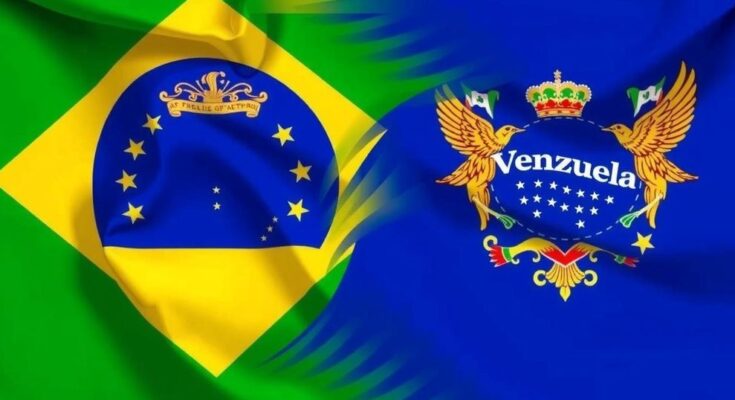The Venezuelan government condemned Brazil’s veto of its BRICS membership application as a “hostile gesture,” linking it to longstanding sanctions policies akin to those of former President Bolsonaro. While 13 nations were invited to join BRICS, Venezuela’s exclusion and Brazil’s refusal to acknowledge Maduro’s electoral victory remain contentious issues reflecting broader tensions in regional diplomacy.
On Thursday, October 24, the government of Venezuela publicly denounced Brazil’s rejection of its bid to join the BRICS bloc, describing the decision as a “hostile gesture.” This announcement came after the conclusion of the BRICS summit held in Kazan, Russia, from October 22 to 24. The Venezuelan Foreign Ministry’s statement criticized Brazil’s position, asserting that it was a continuation of the sanctions policies similar to those previously enforced by former President Jair Bolsonaro. They claimed that such actions exacerbate the “hatred, exclusion, and intolerance” that have targeted Venezuelans for the past decade, perpetuated by dominant global powers. The statement expressed the Venezuelan people’s indignation towards Brazil’s Itamaraty, indicating it upheld harmful policies that challenge the legacy of the Bolivarian Revolution initiated by Commander Hugo Chávez. Moreover, President Nicolás Maduro’s request for BRICS membership was formally submitted in May 2024. Diplomatic sources revealed that Brazil resisted endorsing Venezuela’s inclusion during discussions before the summit. During the summit, it was announced that 13 nations would be welcomed as “partner states,” including Turkey, Indonesia, and Nigeria, while Venezuela was excluded from this expansion. Brazilian Foreign Minister Mauro Vieira confirmed that the leading BRICS nations agreed upon the criteria for future enlargement, which President Vladimir Putin acknowledged involved differing positions between Brazil and Russia regarding Venezuela’s diplomatic status. While Russia recognizes President Maduro’s legitimacy post-election, Brazil refrains from doing so, leading to significant contention in the matter. The Brazilian government has withheld recognition of the election results, which declared Maduro the victor in the July 28 elections; the opposition contends that alternate results favor their candidate but have not formally submitted evidence to the courts. French President Lula has remarked on the necessity for transparent electoral results from both sides, proposing that the National Electoral Council (CNE) should release the comprehensive outcomes and even suggests the possibility of new elections.
The recent BRICS summit in Russia saw growing tensions regarding the admission of new member states, notably Venezuela. The BRICS group, comprised of Brazil, Russia, India, China, and South Africa, has been increasingly selective in its expansion approach. Brazil’s government, under President Lula da Silva, has prioritized diplomatic dealings and has maintained a cautionary stance towards Venezuela, reflecting ongoing political disputes over election legitimacy and governance. The Venezuelan regime’s contention with Brazil arises from differing views: while Russia recognizes Nicolás Maduro’s regime, Brazil, influenced largely by Bolsonaro-era policies, remains skeptical of the election outcomes in the nation, leading to Brazil’s veto against Venezuelan candidacy for BRICS membership. The geopolitical dynamics involved highlight a broader struggle for influence in Latin America, particularly under the lens of international governance and economic partnerships.
In summary, Venezuela’s criticism of Brazil’s rejection of its BRICS membership reflects deep-seated geopolitical tensions and differing political ideologies between the two nations. As Venezuela seeks greater international recognition and inclusion within influential blocs like BRICS, Brazil’s firm stance on electoral legitimacy illustrates the complex interplay of diplomatic relations and the historical context of Venezuelan politics. This situation not only highlights ongoing tensions in Latin American politics but also underscores the challenges nations face when seeking to align with powerful economic groups.
Original Source: www.brasildefato.com.br




